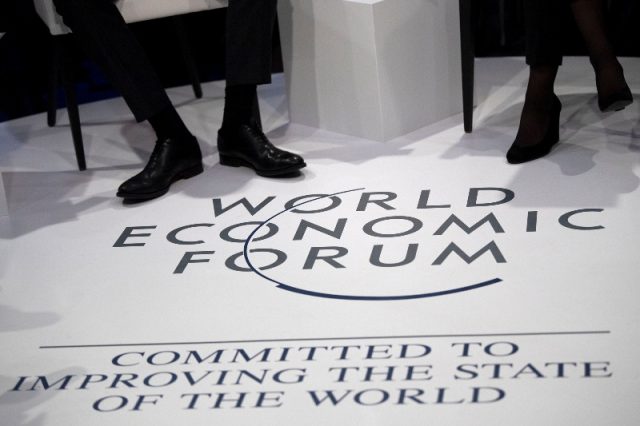…Deforestation is responsible for nearly 15% of global CO₂ emissions. Every year, 10 million hectares of tropical forest are lost – if we do not halt this by 2030, it will be impossible to limit global warming to 1.5°C
…Nature-based solutions, including forest conservation and restoration, can provide one-third of the mitigation needed to reach this climate target
TUE, 20 SEPT, 2022-theGBJournal| The role of forests in the global carbon cycle is fundamental. Unless tropical deforestation is halted, there can be no solution to the climate crisis.
While deforestation is responsible for nearly 15% of global CO₂ emissions, conserving existing forests offers as much as nine times more low-cost carbon abatement as planting new trees. If we do not halt deforestation by 2030 at the latest, it will not be possible to limit global warming to a 1.5°C pathway. In a new report, Forests for Climate: Scaling up Forest Conservation to Reach Net Zero, published today by the World Economic Forum, the case is made for private-sector investment in entire landscape approaches to protect forests.
“There is no tackling climate change without forests. Deforestation alone is responsible for nearly 15% of global CO₂ emissions. Conversely, nature-based solutions can provide one-third of the mitigation needed to limit global warming to 1.5°C,” says Nicole Schwab, Co-Director, Nature-based Solutions, World Economic Forum.
Reversing global deforestation is a complex challenge – but at its heart lie four simple conditions: scale, funding, integrity and inclusion. The report analyses an approach known as “jurisdictional REDD+” that channels results-based payments to forest governments and communities that avoid deforestation across entire landscapes. This approach builds on an existing UN initiative (“Reducing Emissions from Deforestation and forest Degradation” or “REDD”) but scales it up from a project basis to programmes at national or sub-national scales.
Inclusion is a critical part of this new approach. For example, almost half of the intact forests in the Amazon are in Indigenous territories – and deforestation rates in these areas are three-to-four times lower than in equivalent lands not held by Indigenous people. The inclusion of both local communities and state governments or jurisdictions enhances the integrity of the programmes and helps avoid some of the risks associated with earlier attempts to reverse deforestation.
While “jurisdictional REDD+” addresses issues of scale, integrity and inclusion, the vital missing piece is funding. Current investments in nature-based solutions amount to $133 billion per year, of which the private sector contributes just $18 billion, according to estimates published in 2021 by the UN Environment Programme. Nature-based solutions, which include forest conservation and restoration, can deliver one-third of the mitigation needed to keep the planet on a 1.5°C trajectory, but funding for these solutions needs to triple to $400 billion by 2030.
The private sector has a key role to play in preserving the world’s forests while ridding their own supply chains of deforestation. Companies can access “jurisdictional REDD+” programmes through voluntary carbon market initiatives such as the LEAF Coalition that uses the rigorous new “ART TREES” standard for monitoring, reporting and verification. In 2021, the LEAF Coalition mobilized $1 billion in financing, kicking off the largest-ever public-private effort to protect tropical forests in countries such as Costa Rica, Ecuador, Ghana, Nepal and Viet Nam. To maintain the integrity of its carbon credits, the LEAF Coalition requires participating companies to use purchased credits in addition to, and not as a substitute for, deep cuts in their own emissions and those of their suppliers.
“The urgent priority is protecting tropical forests, even above planting new trees (which is also important), because the world loses tropical forests at the rate of 10 million hectares per year – equivalent to about one Central Park every 15 minutes. We need billions of dollars of investment in climate finance to protect the world’s forests. We are working on initiatives like the LEAF Coalition and Green Gigaton Challenge as we believe jurisdictional-scale action is the way to do this,” says Eron Bloomgarden, Founder and Chief Executive Officer of Emergent, a non-profit intermediary acting between tropical forest countries and the private sector.
Twitter-@theGBJournal| Facebook-The Government and Business Journal|email: gbj@govbusinessjournal.ng|govandbusinessj@gmail.com










